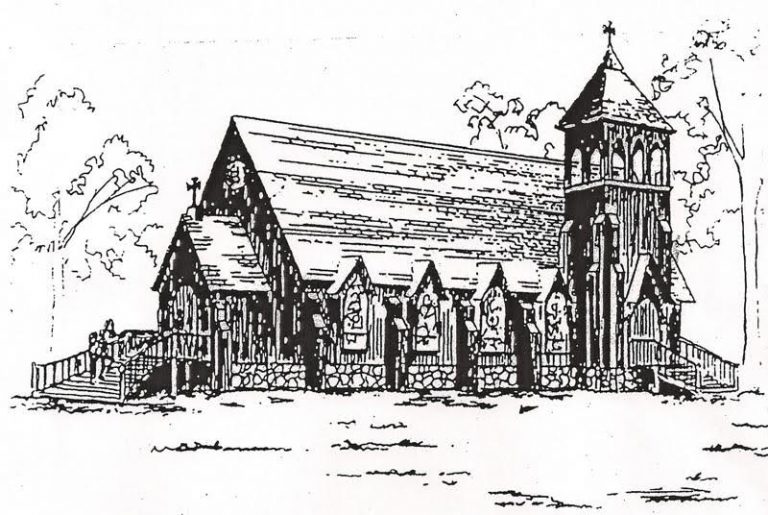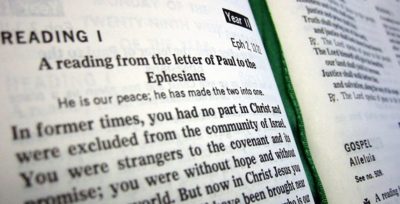Communion of Saints (Communio Sactorum)
The Anglican Church’s position regarding the intercession of the Blessed Virgin Mary and the Saints is that of the ancient and undivided Church of the first millennium: that the Saints, including Our Lord’s Mother, continue to share in the family life of the Church, in the fellowship of love, prayer and grace with us who persevere in the Church militant is affirmed by all orthodox Christians in the Apostles’ Creed, in which we profess our faith in the communio sanctorum, the Communion of Saints. This Communion is both a communion of holy things, the Sacraments, and holy people, the Saints, or holy ones of God, both those on earth and those in communion with the Church beyond the veil. Holy Scripture contains many allusions to this mystery of our faith, including Revelation 6.1-11, which shows us the watchful prayer vigil of the Martyr Saints under God’s Altar throne, Revelation 8.4, which describes the intercessory prayers of the Saints as incense rising before God in heaven, Hebrews 12.1-3, which describes the heavenly throng as the Great Cloud of Witnesses, a heavenly band aware of our circumstances and pleading for us, which cheers us on during our earthly pilgrimage towards glory, S. John 2.1-11, in which the Lord Jesus’ first miracle is accomplished because of the intercession of the Blessed Virgin on behalf of the wedding party. The practice of requesting the intercessions of the glorified Saints is no different in degree, nature, or kind from the necessary intercessory prayer that Christians offer for one another on earth. If I ask you to pray for me and for my intentions, I know that in Christian charity you will do so. If you ask prayers of me, I should be delighted and moved by the same charity to pray for you. Offering requests through God in the Communion of the Saints to those fellow Christians who reign with Christ beyond the veil is no different. We may ask for their prayers, just as we pray for them. Such has ever been the principle of divine charity in prayer which binds the Church together as a supernatural organism (I Corinthians 12). ‘To the Saints honour must be paid as friends of Christ, as sons and heirs of God; these are made treasuries and pure habitations of God. Are not those, then, worthy of honour who are the patrons of the whole race and make intercession to God for us? For those who worship God will take pleasure in those things whereby God is worshipped: let us believers honour the Saints, for God is also worshipped in so doing…’ (Saint John of Damascus, On the Orthodox Faith 15).
The 1928 American Prayer Book clearly teaches and defines the necessity of prayer for the faithful departed, which is the corollary of the intercession of the Saints on our behalf. Because the Church is ‘one family in heaven and earth’ (Ephesians 3.15), we are inseparably joined to those who, now in the heavenly country, worship with us and pray with us in the communion of the Holy Trinity. The Church is a supernatural family bound together by the link of intercessory prayer, in which we pray for the those who have gone before us as they pray for us, all united in the One Mediator between God and man, the Man Christ Jesus (I Timothy 2.5). It is right and proper for us to pray for our elder brethren in the Mystical Body of Christ as they repose in the hope of the Resurrection — as we in turn receive the benefit of their prayers for us their spiritual friends and children. The 1928 BCP offers prayers for the Holy Dead at the Mass, pages 74 and 75, in the Burial Office, pages 332, 334-336, and for special occasions, including the Requiem Mass offered for the departed, pages 268 and 598. Saint Paul prays for the repose of his departed friend Onesiphorus in II Timothy 1.18.
Anglicans are not obliged to solicit the gracious prayers of the Saints on our behalf, but, just as they are not compelled to request the intercessory prayers of fellow Christians in heaven, so they are forbidden to say that such a practice is contrary to Scripture and Tradition. For Anglicans, the practice of the invocation of the Saints is limited in the main to private devotions and extraliturgical services which are not part of the usual public Liturgy. However, it is certainly to be encouraged and has never been rejected by the Anglican Church, which counts herself a true Apostolic Church practicing the fullness of the Catholic Faith, of which the Communion of Saints is a supreme article. Please note that Article of Religion XXII does not condemn the ancient or patristic or biblical doctrine concerning the Invocation of Saints and other related truths, but only the Romish, that is, the popularly-believed late medieval and thus erroneous view of the same.The Anglican teaching is the reformed Catholic view, anchored in the Holy Scriptures and the Tradition of the Primitive Church. Only that which is contained in Holy Scripture is reckoned by Anglicans to be necessary for salvation, and therefore only that doctrine of the state and prayers of the Saints which accords with Scripture is believed to be necessary for all Christians.


